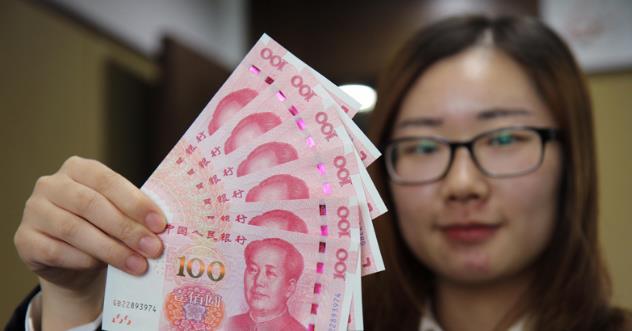
U.S. officials are concerned about the recent depreciation in China's currency and plan to lay out details on China's policies in an upcoming foreign exchange report, according to a senior U.S. Treasury official.
The official was speaking ahead of Treasury Secretary Steven Mnuchin's participation at the IMF-World Bank meeting in Bali this week. As trade tensions have risen and China prepares to retaliate against U.S. tariffs, the yuan's fall against the dollar has accelerated recently and is near a 21-month low. The currency was at 6.92 to the dollar, near its August low of 6.93.
Should it reach a level of 7, analysts expect more selling as that is a key technical and psychological threshold.
U.S. officials have refrained from calling China a currency manipulator in the past. But with trade issues straining relations, there have been rising concerns that China is intentionally weakening its currency to deflect the impact of tariffs on its goods.
The official said the U.S. is "broadly concerned about China's turn away from market-oriented policies and continued reliance on non-market policies."
The currency has fallen nearly 2 percent against the dollar since August.
"This is why a lot of people are speculating that China will be labeled as a currency manipulator," said Marc Chandler, chief market strategist at Bannockburn Global Forex. "There's a lot of speculation they're going to cite China to keep the pressure on China ahead of the G20 meeting where [Chinese President] Xi and Trump can meet."
China Vice Premiere Liu He, Mnuchin's counterpart, is not expected to be in Bali, though central bank and finance officials will be. There are so far no set meetings, and the official reported that nothing is new on trade talks, which have stalled.
The official said any meetings in Bali would not be solely focused on trade and that the U.S. is willing to talk with China on trade as soon as it is willing to have meaningful discussions on the trade imbalance.
The official also said China is a large creditor and the U.S. is interested in making sure Chinese lending and borrowing is done in a transparent manner.
President Donald Trump and other U.S. presidents before him have threatened to label China a manipulator, though there has been no such action since the early 1990s.
China's central bank sets a daily exchange rate for the yuan based on recent prices and allows trading against the dollar in a band that could be as much as 2 percent above or below that level.
Analysts have said the U.S. could base its decision on further trade actions based on how the Chinese currency trades. They also have noted that the trade wars were likely to weaken China's currency anyway and some of the weakness may stem from the fact that China is simply not propping it up.
Chandler said the pressure is also on China because there is a clause in the new trade agreement with Canada and Mexico that would require permission for trade partners to trade with a nonmarket economy.
Source: CNBC



















Latest comments